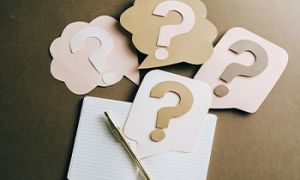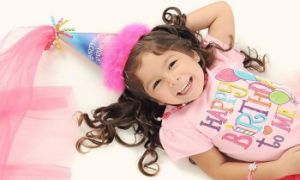The EYLF is a guide which consists of Principles, Practices and 5 main Learning Outcomes along with each of their sub outcomes, based on identity, community, wellbeing, learning and communicating. The Learning Outcomes are to be used to reflect on children’s learning and focus on what a child can achieve rather than what they can’t. The Early Years Learning Framework enables childcare professionals, educators and early childhood teachers within an early childhood setting to extend and enrich children’s learning, provide opportunities for children to develop a foundation for learning and for children to become successful learners.
PS: We have a variety of EYLF templates available in this site for LDC, FDC and OOSH settings. You can use our Learning Stories Templates, Observations, Family Input, Curriculum Plans, Daily Reflections and more. Each of these templates reflect on and provide clear links to the EYLF and we update them regularly. Remember to check them out in this link here: EYLF Templates
What is EYLF
The EYLF is an abbreviation for Early Years Learning Framework' in Australia. EYLF is a framework – it’s not a program, it’s not a curriculum to follow, it’s not a syllabus. It is a foundation of Principles, Practices and Learning Outcomes to assist educators in designing a curriculum, using Learning Outcomes as goals for children to achieve and using the Principles and Practices to reflect of early education, care and learning.
Understanding the Early Years Framework
Regarding programming and documentation methods to use within the EYLF, it doesn’t give a specific format of documentation to follow, however it does provide us with a base for planning, contributing and evaluating children’s learning. It is open to interpretation and each educator will have their own understandings and ideas when implementing the EYLF within an early childhood setting.
Identify and reflect on what you already do that supports the foundation of learning that is referred to throughout the EYLF and what else you can do to provide further opportunities.
Most likely early childhood settings are already implementing a lot of the ideas within the framework such as offering play based learning environments, evaluating on the days experiences through the Daily Diary, documenting children’s learning through observations, extending on children’s interests and more. If this is the case, then there doesn’t need to be much change required within the centre.
Concepts of the Early Years Learning Framework
Belonging, Being & Becoming
Within the Early Years Learning Framework there are three basic concepts that children’s lives are characterized by. They are Belonging, Being and Becoming. This refers to how a child from even before birth is linked to family, community, culture and place. Through these relationships a child’s development and learning takes place as they begin to explore, develop interests, create their own identity and make meaning to the world around them. The three concepts, Belonging, Being & Becoming, represent life and living and are constantly referred to throughout the EYLF.
Belonging
To understand that you are part of a group, feeling that you are part of a family. Having a feeling that you are linked with others and experience important relationships. A child’s sense of belonging can be referred to their relationships with family members – recognizing mum, dad, siblings, grandparents etc. Within early childhood, a child’s sense of belonging can relate to how comfortable a child is within the setting, having a sense of trust and security with childcare professionals. When a child has a sense of belonging they are more confident, feel more secure, be more creative and more likely to explore the world of learning.
Strategies to include Belonging:
- Being respectful and accepting of diversity
- Showing mutual respect
- Have knowledge of families within the centre
- Provide positive and caring relationships
- Engage and interact with children
- Making families feel welcomed
- Appreciating children for their individuality
- Create meaningful learning within the environment
- Meet each individual child’s needs
- Provide a sense of security
Being
To experience what is happening now, life in the present. For children, understanding that they are accepted for who they are and knowing that others care about them. Within early childhood, a child’s sense of being can relate to how childcare professionals show respect to each individual child, through greetings, conversations and actions. When a child has a sense of being they build and maintain relationships with others, take part in life’s journey and face challenges in everyday life.
Strategies to include Being:
- Appreciating skills
- Providing opportunities for children to explore and learn
- Extending on children’s interests
- Embracing culture
- Supporting individual children
- Having respectful relationships with children and families
- Understanding children uniqueness and individuality
- Recognizing each child’s values and skills
- Allowing children to express themselves
- Celebrating children’s achievements
Becoming
To experience change through different events and circumstances in one’s life. A child’s sense of becoming refers to the changes they experience as they grow, learn and develop. Within early childhood, a child’s sense of being, changes overtime as they gain knowledge, extend their understandings, create relationships and develop skills. This enables a child to learn to participate actively in today’s society.
Strategies to include Becoming:
- Implementing school readiness
- Encouraging independence
- Focusing on child’s positives
- Enabling children to be confident
- Reflecting on individual growth
- Aspiring others
- Acknowledging self
- Maintaining and developing relationships
- Building foundations for learning
- Expanding on skills
Principles, Practices and Learning Outcomes
The Early Years Learning Framework has a structure provided by three key elements – Principles, Practices and Learning Outcomes. These help us to reflect about our work, to appropriately plan our programs for children and guide us on how we work with children, their families and our community.
Principles
Principles relates to our beliefs and values. The Early Years Learning Framework provides us with Principles to guide us in our work with children and focuses on assisting each individual child to make progress towards the Learning Outcomes. The five principles are the following –
- Secure, respectful and reciprocal relationships – having an understanding and being aware of children’s thoughts and feelings. Positively interacting with each individual child in their learning and support the development of a child’s sense of wellbeing.
- Partnerships – working in partnerships with families within the early childhood setting. Creating a warm and welcoming environment for all children and their families. Collaborating with childcare professionals, parents, people within the community to ensure learning experiences are meaningful for the children.
- High Expectations and equity – believing that all children are able to succeed, regardless of cultural diversity and abilities. Having high expectations for all children in their achievement in learning. Ensure that all children have opportunities to achieve learning outcomes.
- Respect for diversity – respecting, valuing and reflecting the values and beliefs of families. Show consideration and respect of cultures, languages, histories, traditions, family lifestyle practices of all families. Promote a greater understanding of Aboriginal and Torres Strait Islanders.
- Ongoing learning and reflective practices – continually improve professional knowledge and learning practices. Value the local knowledge of families and the community. Engage in ongoing learning of philosophy, ethics and practice. Gather information that supports children’s developmental learning.
Practices
Practices relates to how we put our Principles into action by working together with children, their families and within our community. The Early Years Learning Framework promotes children’s learning by drawing upon a repertoire of pedagogical practices (using our skills and knowledge that enable us to help children to learn) by –
- Holistic approaches – teaching and learning through recognition of the mind, body and spirit. Paying attention to a child’s physical, personal, social & emotional, cognitive and spiritual wellbeing aspects of learning. Foster and enhance children’s understanding of the natural environment and the connections between the people, plants, animals and the land.
- Responsiveness to children – being aware and responding to each individual child’s strengths, abilities and emerging interests. Value and further develop children’s strengths, interests, skills, abilities and knowledge to further extend their learning.
- Learning through play – provides an endless amount of opportunities for children to explore, discover, create and imagine. Play extends children’s thinking and promotes a hands on approach to learning. Create a learning environment which encourages children to build on children’s learning in positive ways.
- Intentional teaching – teaching that is deliberate, purposeful and thoughtful. Actively promote children’s learning through challenging experiences and interactions. Use strategies to extend on children’s problem solving and thinking such as demonstrating, explaining and questioning.
- Learning environments – respond to the interests and needs of the children. Both indoor/outdoor environments offer children and families to contribute ideas, questions, and interests and promote children’s understanding about their responsibility to care for their environment. Provide a range of opportunities for individual and shared experiences.
- Cultural competence – celebrates the benefits of diversity and has the ability to understand and acknowledge differences. Effectively communicate and interact with children, families and members of the community across cultures. Gain knowledge, understanding and a positive attitude towards cultural differences.
- Continuity of learning and transitions – building on each child’s past and present experiences enables them to feel secure, confident and connected to people, events and situations that they are familiar with. Transitions between settings offer opportunities and challenges. Assist children in understanding the traditions, routines and practices of the settings to ease the transition process and to help deal with any changes that may occur.
- Assessment for learning – relates to the process of gathering and analyzing information as evidence about what children understand and their abilities. An ongoing cycle of planning, documenting and evaluating each child’s learning which enables us to support and extend children’s learning. It should include a variety of methods as all children demonstrate their learning in different ways.
Learning Outcomes
Learning Outcomes encourages childcare professionals to focus on what children can do as well as supports and guides individual learning programs for children. It provides goals or achievements which can be used to identify a child’s progression through any experience they are engaged in.
The Learning Outcomes are relevant to children of all ages (birth to 12 years) and acknowledges that each individual child learning progresses at their own rate. In the Early Years Learning Framework there are five main Learning Outcomes and under each of the outcomes there are sub outcomes which provide key components of learning that may be observed in children as they learn.
For further information on the five Learning Outcomes, key components of learning as well as points of evidence that children may display and examples of ways to promote this learning see the following:
- EYLF Learning Outcomes
- How Children Can Achieve EYLF Learning Outcomes
- How Educators Can Promote EYLF Learning Outcomes
Achieving the Learning Outcomes through Play Based Learning
Play enables a connection for children to explore, discover, imagine, develop ideas, interact, communicate and a sense of being, belonging and becoming. Play provides opportunities for children to connect their thinking and actions which facilitates learning.
Play based learning supports children’s understanding, skills and abilities. It is important that educator’s support and value meaningful play experiences and assess a child’s learning through observations and other means of documentation, through these play experiences. It’s important to plan for further learning experiences and document each individual child’s learning through play.
The Learning Outcomes can be achieved when working in collaboration with families and the community. By working together and creating an understanding of each other’s expectations and building on the strength of our knowledge. The following planning cycle can be used to assess which Learning Outcomes can be achieved – noticing (gathering information), recognizing (interpreting observations and identifying learning) and responding (planning strategies to support and extend on learning).
Implementing the EYLF
A great element of the Early Years Learning Framework is that it doesn’t tell us what to do. It asks us to think, reflect, use our knowledge and our best judgement to design a curriculum for children. This process is referred to curriculum decision making. The EYLF guides educators to think about curriculum decisions.
One of the main concerns that educators will have is the implementation of the correct curriculum which reflects the EYLF. Each experience that is added onto a curriculum plan needs to have a Learning Outcome that children will achieve through the experience as well as an input key to justify where the experience has come from. As long as this is added then this is one of the ways to validate how the curriculum links to the Early Years Learning Framework.
Educators need to be familiar with the terminology, principles, practices and the learning outcomes. Reflect on current practices on how it could fit in with the EYLF. Begin to interpret observations of children and their interests and look at which Learning Outcomes are being reflected in the documentation. For children’s individual records, gather portfolios for each individual child to document children’s learning.
When using portfolios, ensure to use key terms and concepts from the Early Years Learning Framework. Constantly add experiences to the curriculum to incorporate emerging interests of the children, and to follow and extend on individual and group learning. These are just some of the ideas that you can use to help you get started.



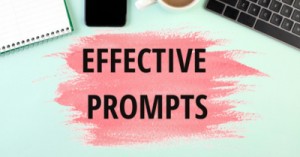
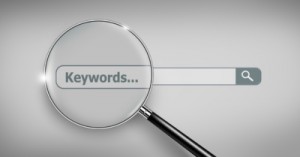

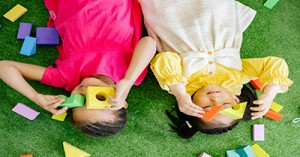
 Here is the list of the EYLF Learning Outcomes that you can use as a guide or reference for your documentation and planning. The EYLF
Here is the list of the EYLF Learning Outcomes that you can use as a guide or reference for your documentation and planning. The EYLF The EYLF is a guide which consists of Principles, Practices and 5 main Learning Outcomes along with each of their sub outcomes, based on identity,
The EYLF is a guide which consists of Principles, Practices and 5 main Learning Outcomes along with each of their sub outcomes, based on identity, This is a guide on How to Write a Learning Story. It provides information on What Is A Learning Story, Writing A Learning Story, Sample
This is a guide on How to Write a Learning Story. It provides information on What Is A Learning Story, Writing A Learning Story, Sample One of the most important types of documentation methods that educators needs to be familiar with are “observations”. Observations are crucial for all early childhood
One of the most important types of documentation methods that educators needs to be familiar with are “observations”. Observations are crucial for all early childhood To support children achieve learning outcomes from the EYLF Framework, the following list gives educators examples of how to promote children's learning in each individual
To support children achieve learning outcomes from the EYLF Framework, the following list gives educators examples of how to promote children's learning in each individual Reflective practice is learning from everyday situations and issues and concerns that arise which form part of our daily routine while working in an early
Reflective practice is learning from everyday situations and issues and concerns that arise which form part of our daily routine while working in an early Within Australia, Programming and Planning is reflected and supported by the Early Years Learning Framework. Educators within early childhood settings, use the EYLF to guide
Within Australia, Programming and Planning is reflected and supported by the Early Years Learning Framework. Educators within early childhood settings, use the EYLF to guide When observing children, it's important that we use a range of different observation methods from running records, learning stories to photographs and work samples. Using
When observing children, it's important that we use a range of different observation methods from running records, learning stories to photographs and work samples. Using This is a guide for educators on what to observe under each sub learning outcome from the EYLF Framework, when a child is engaged in
This is a guide for educators on what to observe under each sub learning outcome from the EYLF Framework, when a child is engaged in The Early Years Learning Framework describes the curriculum as “all the interactions, experiences, activities, routines and events, planned and unplanned, that occur in an environment
The Early Years Learning Framework describes the curriculum as “all the interactions, experiences, activities, routines and events, planned and unplanned, that occur in an environment